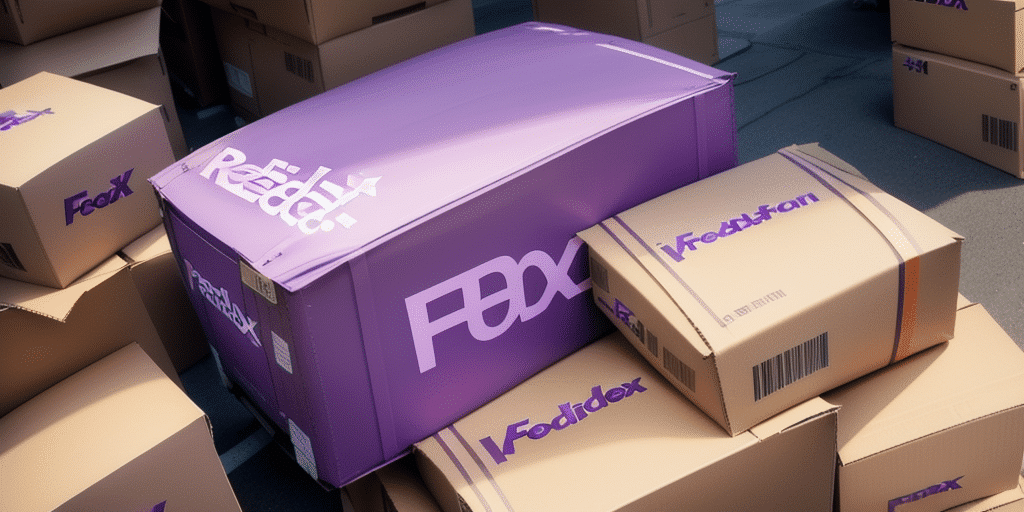Exporting Custom Data with FedEx Ship Manager Integration
In today's globalized economy, the efficient transportation of goods is crucial for businesses of all sizes. Whether you are a small business owner or a large corporation, tracking shipments and navigating complex customs regulations can be challenging without the right tools. FedEx Ship Manager Integration offers a comprehensive solution to streamline your shipping operations. This article explores the importance of custom data export and provides a detailed guide on leveraging FedEx Ship Manager Integration to enhance your shipping efficiency.
Understanding the Importance of Custom Data Export
Enhancing Shipment Visibility
Custom data export involves transmitting detailed shipment information to customs authorities, ensuring smooth clearance of goods across borders. Accurate and complete data minimizes the risk of delays, fines, or seizure of goods, safeguarding your business reputation.
Compliance with International Regulations
International trade regulations require precise documentation for aspects such as product labeling, packaging, and safety standards. Proper custom data export ensures compliance with destination countries' requirements, avoiding legal issues and penalties.
Improving Supply Chain Efficiency
By exporting custom data effectively, businesses gain better visibility into their shipment processes. This insight helps identify and address supply chain bottlenecks, enhancing overall operational efficiency.
Overview of FedEx Ship Manager Integration
Key Features and Capabilities
FedEx Ship Manager Integration connects your business systems directly to FedEx's transportation network, offering features like real-time shipment tracking, automated customs documentation, and advanced reporting. These capabilities simplify workflows, reduce errors, and save valuable time.
Benefits for Businesses
- Real-Time Tracking: Monitor shipments from origin to destination, ensuring timely deliveries.
- Advanced Reporting: Generate detailed reports on shipping costs, delivery times, and package dimensions to optimize shipping strategies.
- Automation: Automate the generation and transmission of customs documents, reducing manual data entry and associated errors.
Setting Up FedEx Ship Manager Integration
Account Registration and Software Installation
Begin by signing up for a FedEx account and downloading the Ship Manager software from the FedEx website. Follow the installation instructions to integrate the software with your existing business systems.
Configuring Custom Data Export
Ensure your business systems meet FedEx's compatibility requirements. Configure the necessary data fields, such as product value and country of origin, within the Ship Manager software to facilitate accurate custom data export.
Exporting Custom Data: A Step-by-Step Guide
Entering Shipment Details
Accurately input all shipment details into the Ship Manager system, including package dimensions, weight, and contents. Verification at this stage is critical to prevent delays or fines.
Generating and Transmitting Customs Documents
Use the Ship Manager software to generate necessary customs documentation. Transmit these documents electronically to relevant authorities, ensuring compliance with international trade regulations.
Tracking Shipment Progress
Leverage the real-time tracking feature to monitor the status of your shipments. Receive notifications on any delays or issues, allowing you to take proactive measures to ensure timely delivery.
Addressing Common Challenges in Custom Data Export
Ensuring Data Accuracy
Incorrect or incomplete data can lead to shipment delays and legal penalties. Implement data validation rules and conduct regular audits to maintain data integrity.
Standardizing Data Formats
Inconsistencies in data formats can complicate integration across different systems. Establish standardized data protocols, including consistent field definitions and naming conventions, to streamline data management.
Managing Compliance Issues
Stay updated with evolving international trade laws and regulations. Collaborate with FedEx's customer support to ensure your custom data export processes align with current compliance requirements.
Optimizing Custom Data Export with Advanced Features
Automated Processing
Utilize FedEx Ship Manager's automation capabilities to handle repetitive tasks, such as generating and sending customs documents, reducing the risk of human error.
Advanced Reporting and Analytics
Take advantage of detailed reporting tools to analyze shipping performance metrics. Identify trends and areas for improvement to enhance operational efficiency and reduce costs.
Customized Shipping Rules
Set up rules within Ship Manager to automate shipping options based on criteria like destination, weight, and package dimensions. This ensures consistent and cost-effective shipping practices.
Managing and Analyzing Exported Data
Data Visualization Tools
Implement data visualization tools to interpret shipment data effectively. Visual insights can help identify patterns, track performance, and make informed business decisions.
Regular Reporting Intervals
Establish consistent reporting schedules to review shipping data regularly. This proactive approach enables timely identification of issues and swift corrective actions.
Data Governance and Security
Ensure data accuracy and security by implementing robust data governance policies. Regular audits and validation checks help maintain the integrity and confidentiality of your shipment data.
Advantages of Using FedEx Ship Manager Integration Over Traditional Methods
- Increased Efficiency: Automate routine tasks, reducing manual effort and minimizing errors.
- Improved Accuracy: Accurate data entry and automated processes ensure reliable shipment information.
- Real-Time Tracking: Gain instant visibility into shipment status, enhancing customer satisfaction.
- Cost Savings: Optimize shipping processes and reduce operational costs through advanced reporting and analytics.
Case Studies: Successful Custom Data Export with FedEx Ship Manager Integration
Reducing Shipping Times
A mid-sized e-commerce company integrated FedEx Ship Manager, resulting in a 20% reduction in shipping times by automating customs documentation and leveraging real-time tracking.
Enhancing Data Accuracy
A manufacturing firm improved its data accuracy rates by 30% by utilizing Ship Manager's automated data validation features, minimizing shipment delays and penalties.
Future Trends in Custom Data Export with Shipping Management Systems
Predictive Analytics
Integration of predictive analytics will enable businesses to anticipate and mitigate potential shipping disruptions, enhancing proactive decision-making.
Blockchain Technology
Adopting blockchain can enhance the transparency and security of shipment data, ensuring tamper-proof records and streamlined data sharing among stakeholders.
Regulatory Advancements
As international trade regulations evolve, shipping management systems like FedEx Ship Manager will continue to adapt, offering updated features to maintain compliance and efficiency.
In conclusion, custom data export is a vital component of modern shipping operations. By utilizing FedEx Ship Manager Integration, businesses can ensure accurate, timely, and compliant shipments. Implementing the best practices and leveraging advanced features outlined in this guide will help streamline your shipping workflows, enhance data management, and maintain a competitive edge in the global marketplace.






















